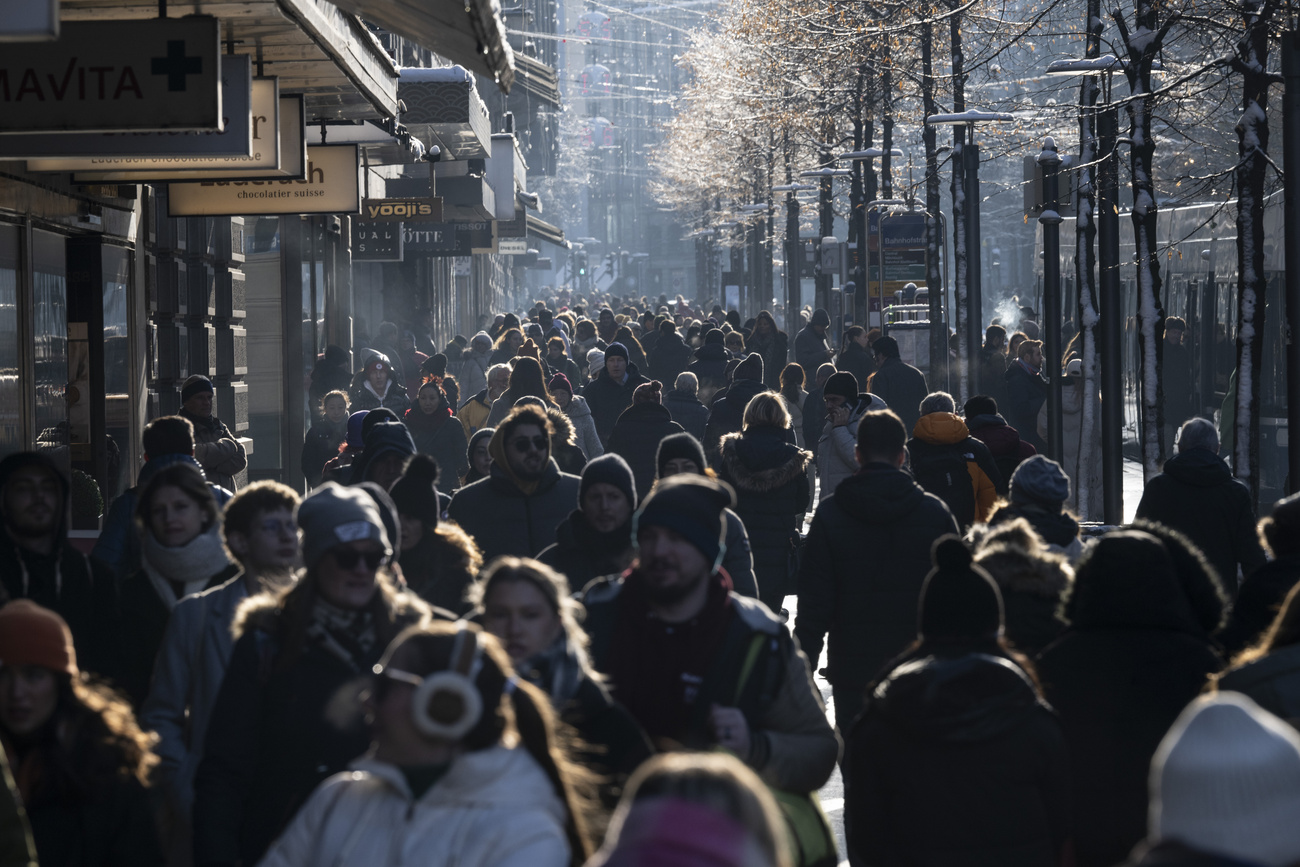
Swiss researchers join forces to prevent mask shortages

Dozens of researchers have joined forces to equip Switzerland with enough masks to confront the coronavirus and future pandemics. During the Covid-19 crisis, protective masks have become a rare commodity in many parts of the world.
A national consortium has been set up to work on the “ReMask” project which aims to develop new kinds of protective facial gear and technologies that would allow the reuse of existing masks, according to a Thursday government announcement.External link The consortium is currently developing so-called community masks that meet three key criteria.
“We are trying to achieve protection against drops, but also against the very fine droplets that are produced when coughing,” explains René Rossi, director of the biomimetic membranes and textiles lab at the Swiss Federal Laboratories for Materials Science and Technology (EMPA).External link “In addition, the mask has to be comfortable enough.”
+ Protective masks optional for Swiss citizens
Avoiding DIY masks
A central objective of the project is to develop techniques for reusing masks.
“There are some very good masks which, even if they lost half their effectiveness, would still meet the standards,” says Gilles Richner of the Spiez Laboratory, which focuses on the protection of the population against nuclear, biological and chemical threats.
The project also aims to dissuade people from making their own masks: “We want to prevent people from making pseudo-masks out of a cotton T-shirt, for example, which we know has no protection,” says Rossi.
About 30 researchers from EMPA, the Swiss Federal Institutes of Technology in Zurich and Lausanne (ETHZ, EPFL), and Spiez laboratory are contributing their expertise. Partner hospitals include the University Hospital of Zurich, Inselspital Bern, and the Lausanne University Hospital (CHUV). Some 200 companies from the Swiss Textiles industry association are on board.
With the ReMask project, the researchers hope to help the country avoid a shortage of masks, both now and in the longer term.

More
Coronavirus: the situation in Switzerland

In compliance with the JTI standards
More: SWI swissinfo.ch certified by the Journalism Trust Initiative




























You can find an overview of ongoing debates with our journalists here . Please join us!
If you want to start a conversation about a topic raised in this article or want to report factual errors, email us at english@swissinfo.ch.